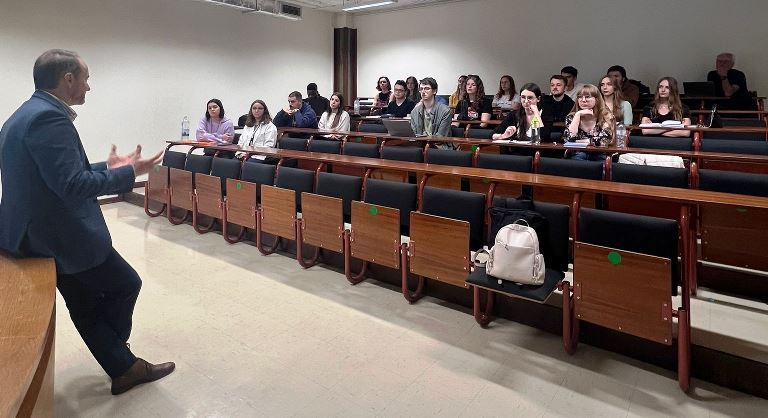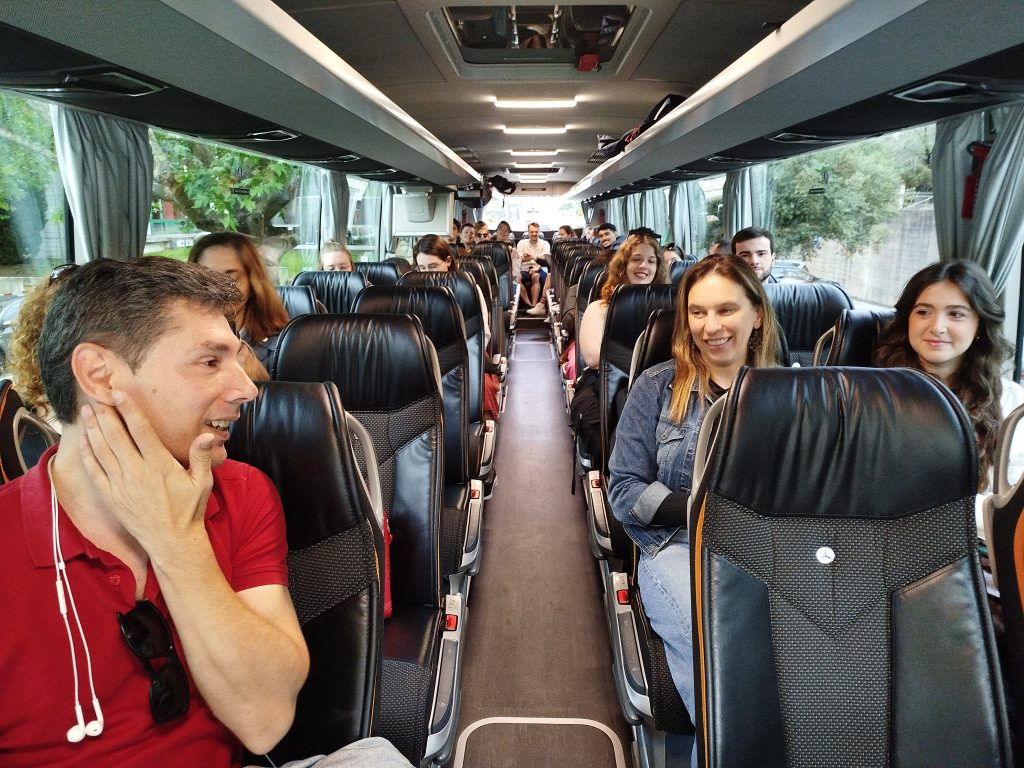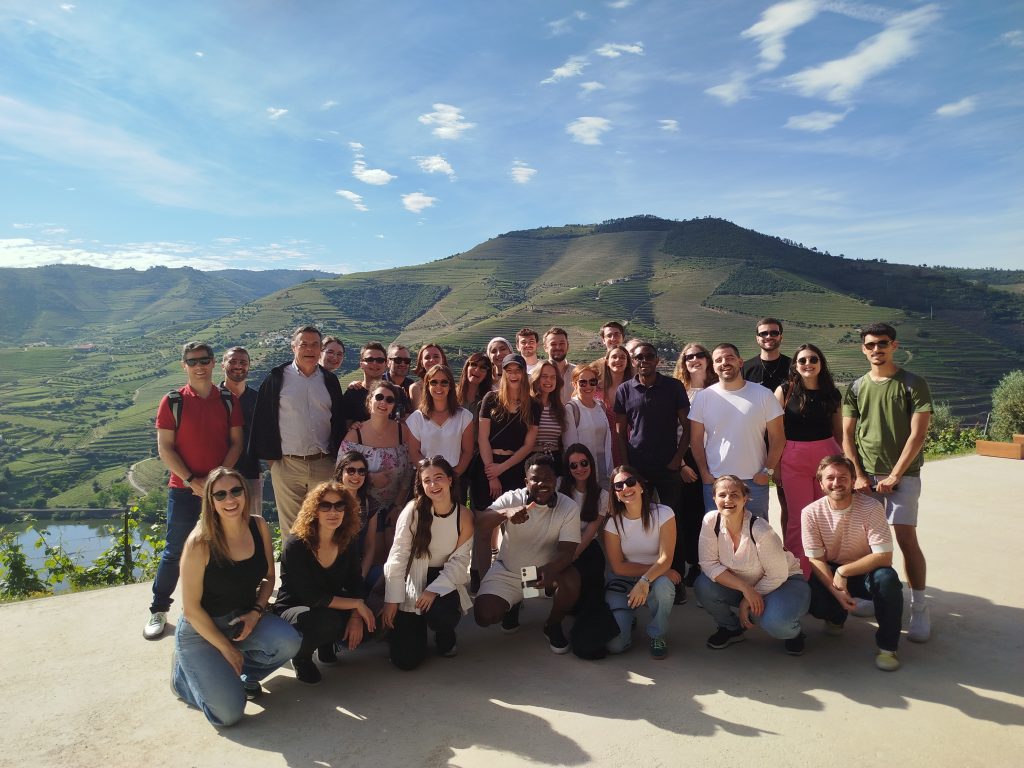Minho takes Arqus students to investigate the Douro vineyards within the BIP “Plant Adaptations to Climate Changes”
|
09 May 2024|
09 May 2024The visit is part of the Blended Intensive Programme (BIP) “Plant Adaptations to Climate Changes” that is being coordinated by the University of Minho and co-organised by the members of the Arqus Cluster on Sustaible Development and Climate Change from the Universities of Granada and Wrocław, and the Université Catholique de Louvain.
A total of 15 foreign Master and PhD students (from Wrocław, Granada and Louvain) and 10 Master and PhD students from Portugal are participating until 17th May in this BIP aimed to “promote mobility, cooperation and solidarity at European level and the exploration of innovative teaching and learning approaches”, says Hernâni Gerós, Coordinator of the BIP from the University of Minho.
In April, dozens of international scientists gave online synchronous lectures and technical talks, which were recorded for later availability in an asynchronous teaching format. “Relevant and timely topics were covered, such as the impact of climate change and pollution on plant diversity, growth and productivity, and the mechanisms of plant response to environmental aggression were explored at the biochemical and molecular level”, adds the BIP Coordinator. “The majority of the technical lectures, for example, dealt with the application of transcriptomic and metabolomic approaches to the study of plant interactions with the environment, which provided the basis for the experimental work to be carried out during the week of 6th May,” he stresses.






After the virtual phase of the BIP developed from 15th to 19th April, the students organised themselves into groups, reflected on the content taught and developed projects that will now be applied in the face-to-face experimental work week at UMinho, in a project-based teaching approach – Challenge Based Learning (CBL).
Based on student projects, “we will implement protocols to study how plants respond to environmental stresses, such as disease or heavy metals, by quantifying the expression of key genes and the production of defence metabolites. During the work week, we will also visit the Douro vineyards (Quinta do Seixo – Sogrape), where there will be some lectures of a more applied nature, namely on precision agriculture”, emphasises Hernâni Gerós. Students and teachers will then return to their countries of origin for the third week of the intensive course to take part in some more online sessions.